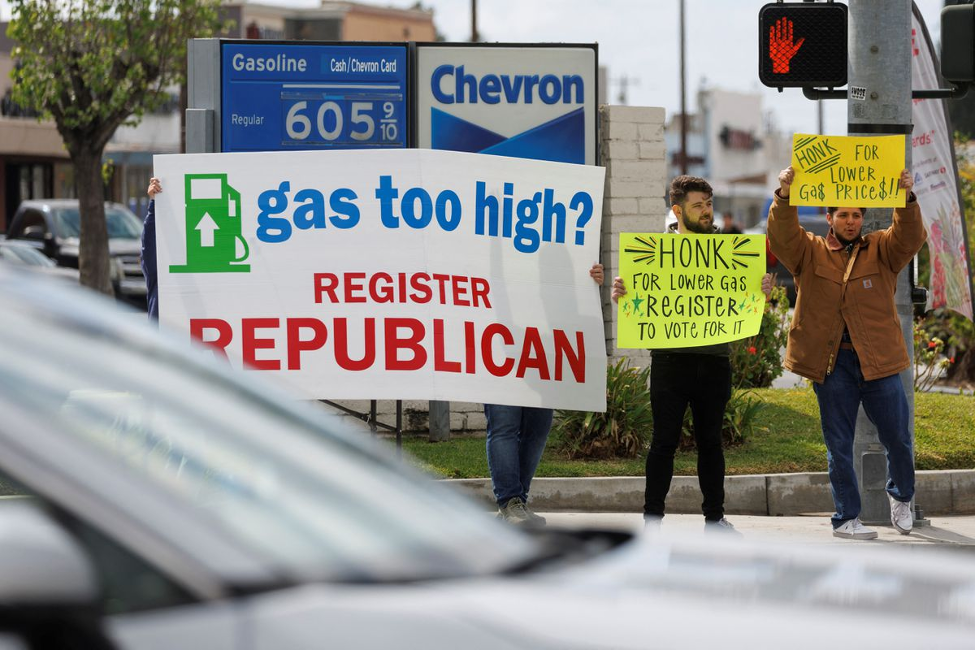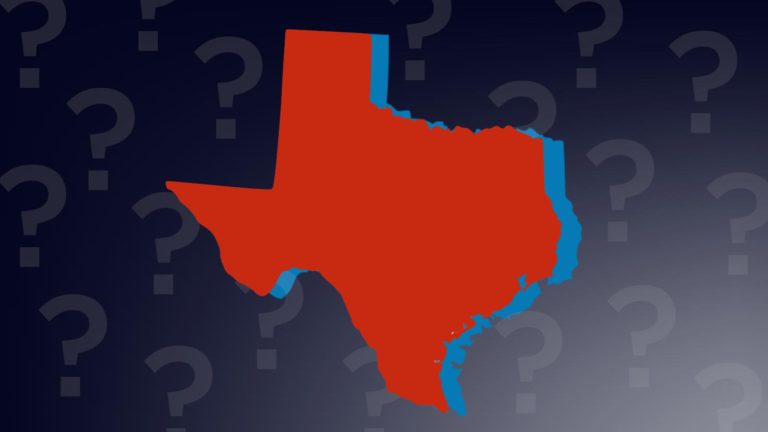
President Biden is in a precarious situation. With midterms right around the corner, Democrats are projected to lose both the House and Senate. A significant reason why is voter’s wide concerns over inflation, which has plagued Biden’s term. But most voters likely aren’t obsessing over CPI data, rather their exposure to inflation is based most prominently on a single number, one that is seen and changes daily: the price of gas.
There is a stark inverse correlation between Biden’s approval rating (and support for Democrats in general) and the price of gas. A correlation that has been observed for past presidents too: according to a 2016 study, a 10 cent rise in the price of gas was found to be correlated with half a point reduction in approval rating. What makes gas prices particularly impactful on voters is that it’s the most salient unit price they see, as they see gas prices daily on giant billboards that they regularly drive by. The same was found to apply to food – voters often judge inflation based on goods that they buy regularly, like milk, rather than a basket of goods, which the CPI calculation measures. Since voters form their perceptions around goods like milk and gas, which can be heavily volatile, they have an exaggerated sense of inflation in the economy – as this volatility is precisely why the core inflation metric excludes food and energy prices. Outside factors which have been driving up gas prices, such as the Russian invasion of Ukraine and OPEC cutting production, are not reflective of the monetary policy of the United States. It feels rather unfair that seemingly so much of Biden’s approval is predicated on something that he has little control over. The Democrats may very well lose the midterms because of this. Which begs the question, what could Biden and the Democrats have done? The answer is a lot, if he was willing to sacrifice some moral integrity.
Biden has consistently made use of the Strategic Petroleum Reserve (SPR) in order to bolster the supply of oil and drag down the price of gas. According to the US Treasury Department Biden’s past SPR releases lowered gas prices by $0.38 on the gallon. This is a potentially effective strategy only limited by the actual supply of the reserve. Hence if the reserve had been expanded earlier Biden would’ve had even more room to push gas prices down. In hindsight, the Democrats should’ve allowed for the SPR to be stocked when oil was cheap in 2020. As was the proposed plan under Trump which Schumer stopped, under the pretense that it was a “bailout” for the oil industry. In fact, that might’ve just been what Democrats needed to do! US oil and gas producers suffered massive losses in 2020 and it led to them cutting production and investment to profit from high prices. According to the Dallas Fed Energy Survey, 59% of oil and gas executives stated that “capital discipline is the primary reason that publicly traded oil producers are restraining growth despite high oil prices”.
The problem is that Biden and the Democratic Party have an ideological commitment to addressing climate change, and that means they want oil production and fossil field dependency to ultimately go down. Evident through Biden’s initial actions of canceling the Keystone XL pipeline and attempting to ban new leases on federal land. Reversing these actions would do practically nothing, the Keystone XL pipeline transports tar sand oils to Alberta for export. Tar sand oils are not commonly used for gasoline production and thus increasing the supply of it wouldn’t meaningfully impact gas prices. Halting new leases on federal land only impacts the long term given that it takes years to open wells and have them produce enough to be significant.



